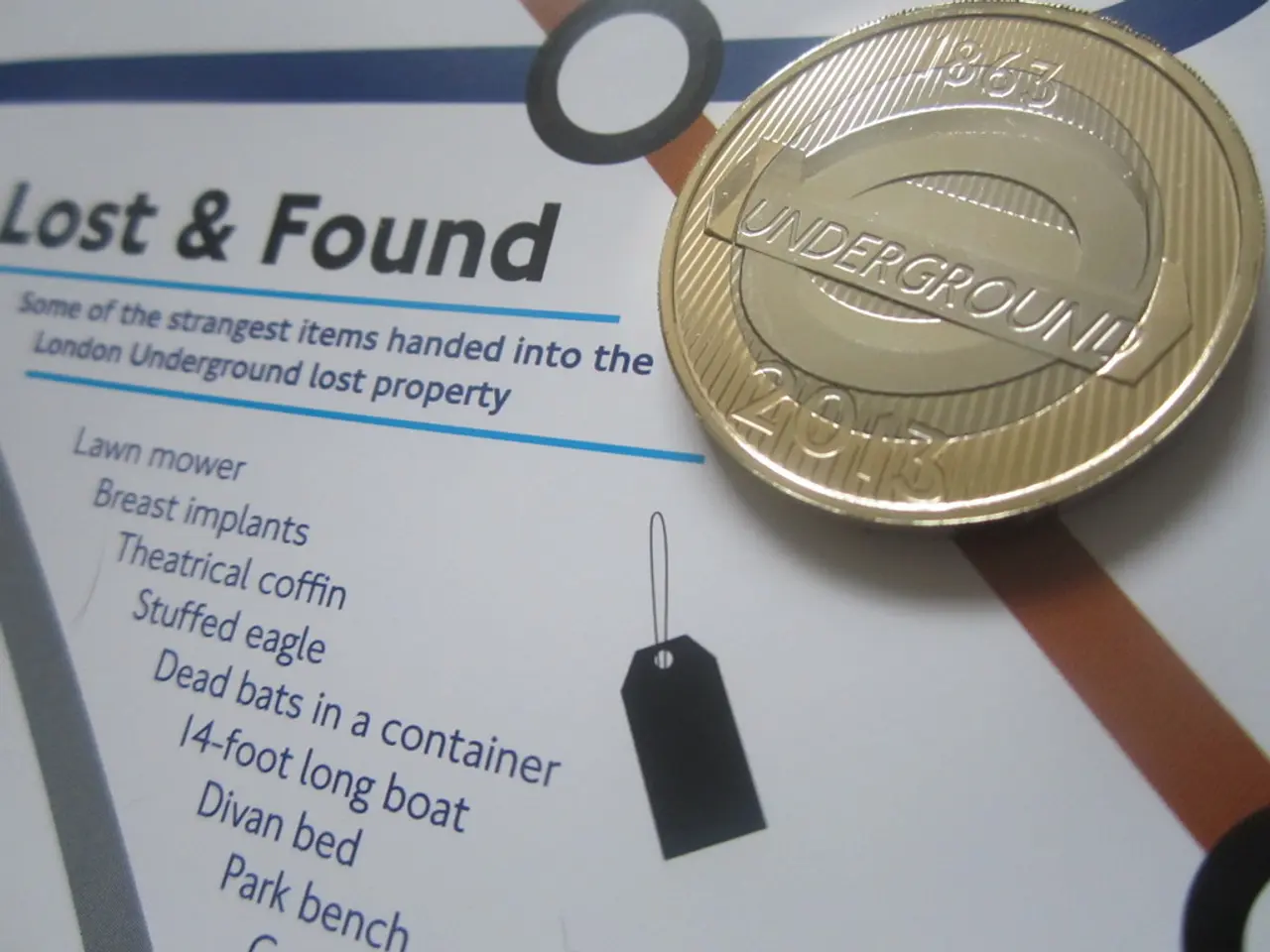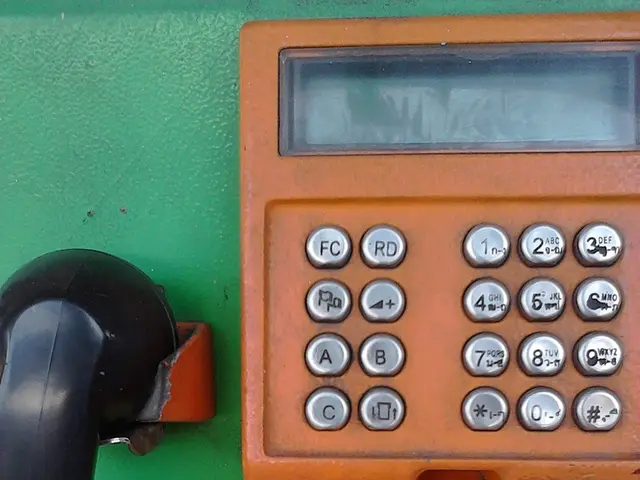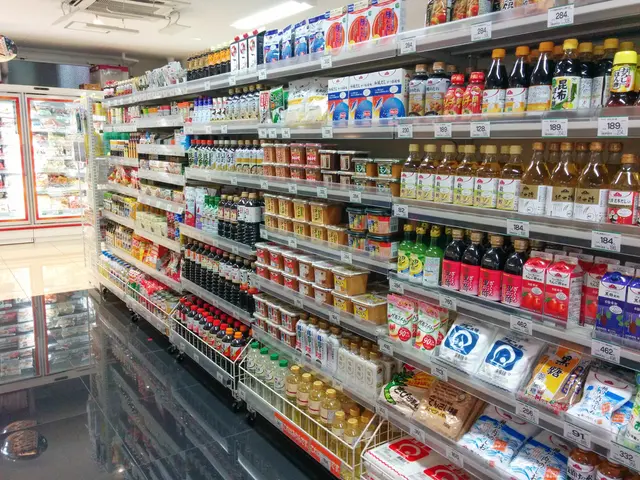Online gambling in the Philippines facing potential stricter regulations from the country's central banking institution.
The Philippine Central Bank (Bangko Sentral ng Pilipinas, BSP) has announced stricter regulations on online gambling, aiming to tighten controls on online gambling transactions, enhance consumer protection, and curb illegal operations that reportedly constitute about 70% of the market[1][2][4][5].
In response to societal and political criticism of the online gambling sector, the BSP has issued draft rules targeting payment firms and online gambling transactions, with deadlines for compliance and feedback already set[2]. The new measures are intended to preemptively cut off unregulated gambling websites from targeting consumers.
The BSP's aggressive enforcement efforts are evident in the permanent banning of several unregistered money changers and the revocation of licenses of certain operators involved in unregulated digital financial activities linked to gambling and virtual assets[2]. Enhanced regulations include strict anti-money laundering (AML) and consumer protection policies for Virtual Asset Service Providers (VASPs), digital banks, and payment platforms to better detect and prevent fraud, deception, and illegal gambling money flows[2][3].
The BSP is expanding its ASTERisC* cybersecurity and compliance platform to all banks and VASPs by January 2025 to streamline regulatory compliance and mitigate risks related to online gambling and digital financial transactions[2]. On the tax and broader regulatory front, the Philippine government is considering additional measures such as iGaming sin taxes to fund problem gambling services and review of inland gaming operators ("PIGOs"), indicating an integrated approach across regulatory bodies beyond BSP alone[4][5].
The impact on consumer protection involves increased safeguards against deceptive ads and fraudulent schemes promoting illegal gambling apps or platforms[2]. Tighter Know Your Customer (KYC) and transaction monitoring requirements leveraging advanced technologies like AI and machine learning will quickly flag suspicious or high-risk gambling activities[3]. Potential reduction of transaction costs and improved financial inclusion via updated fee structures and regulatory clarity around digital gambling payments are also anticipated[2].
Regarding the impact on black market operations, the crackdown on unregistered money changers and banned operators directly targets the underground economy facilitating illegal online gambling[2]. Enforcement of stricter licensing, AML compliance, and digital platform monitoring seeks to significantly reduce illicit gambling and money laundering activities proliferating through informal channels[1][2].
The new BSP regulations represent a comprehensive attempt to formalize, regulate, and secure the online gambling ecosystem in the Philippines, balancing consumer protection with industry oversight while attempting to suppress the substantial illegal online gambling market[1][2][4][5].
To give players more control over their gambling habits, the Philippine Central Bank is introducing tools that allow players to set their spending limits and self-exclude from gambling. Time-based restrictions for gambling transactions and mandatory breaks during gambling sessions are also being considered[1][3]. Some parties in the Philippines have been calling for an outright ban on online gambling, but only a fraction of the Philippine population is considering a complete ban on online gambling seriously[6].
Matej Novota, from our website, has cautioned that banning an activity outright could drive more players to unregulated, offshore, and black market gambling[7]. The new rules will be obligatory for all financial service providers, requiring them to ensure that gamblers are spending their own money[8]. The aim of the new rules is to give players more control over their gambling habits while keeping black market operations at bay.
References:
[1] Rappler. (2022, February 2). BSP to regulate online gambling, ban unregistered digital money changers. Retrieved from https://www.rappler.com/business/650461-bsp-to-regulate-online-gambling-ban-unregistered-digital-money-changers
[2] Manila Bulletin. (2022, February 2). BSP issues draft rules on online gambling, digital money changers. Retrieved from https://mb.com.ph/2022/02/02/bsp-issues-draft-rules-on-online-gambling-digital-money-changers/
[3] ABS-CBN News. (2022, February 2). BSP issues draft rules on online gambling, digital money changers. Retrieved from https://news.abs-cbn.com/business/02/02/22/bsp-issues-draft-rules-on-online-gambling-digital-money-changers
[4] Inquirer.net. (2022, January 26). BSP eyes iGaming sin tax, review of PIGOs. Retrieved from https://business.inquirer.net/347796/bsp-eyes-igaming-sin-tax-review-of-pigos
[5] Philstar.com. (2022, January 26). iGaming sin tax, review of PIGOs among BSP proposals. Retrieved from https://www.philstar.com/business/2022/01/26/2177662/igaming-sin-tax-review-pigos-among-bsp-proposals
[6] ABS-CBN News. (2022, February 2). BSP issues draft rules on online gambling, digital money changers. Retrieved from https://news.abs-cbn.com/business/02/02/22/bsp-issues-draft-rules-on-online-gambling-digital-money-changers
[7] Manila Bulletin. (2022, February 2). BSP issues draft rules on online gambling, digital money changers. Retrieved from https://mb.com.ph/2022/02/02/bsp-issues-draft-rules-on-online-gambling-digital-money-changers/
[8] Inquirer.net. (2022, January 26). BSP eyes iGaming sin tax, review of PIGOs. Retrieved from https://business.inquirer.net/347796/bsp-eyes-igaming-sin-tax-review-of-pigos
- The Philippine Central Bank (BSP) aims to tighten controls on online gambling transactions through new regulations, which include stricter anti-money laundering (AML) and consumer protection policies for payment firms in the finance and fintech industry.
- The BSP's new regulations on online gambling transactions also require financial service providers to ensure that gamblers are spending their own money, a move aimed at enhancing consumer protection.
- In addition to stricter regulations on the online gambling industry, the Philippine government is considering additional measures such as iGaming sin taxes to fund problem gambling services and review of inland gaming operators, indicating an integrated approach across regulatory bodies.
- The new BSP regulations are intended to formalize, regulate, and secure the online gambling ecosystem, balancing consumer protection with industry oversight while attempting to suppress the substantial illegal online gambling market, thus impacting both the finance and politics sectors.





